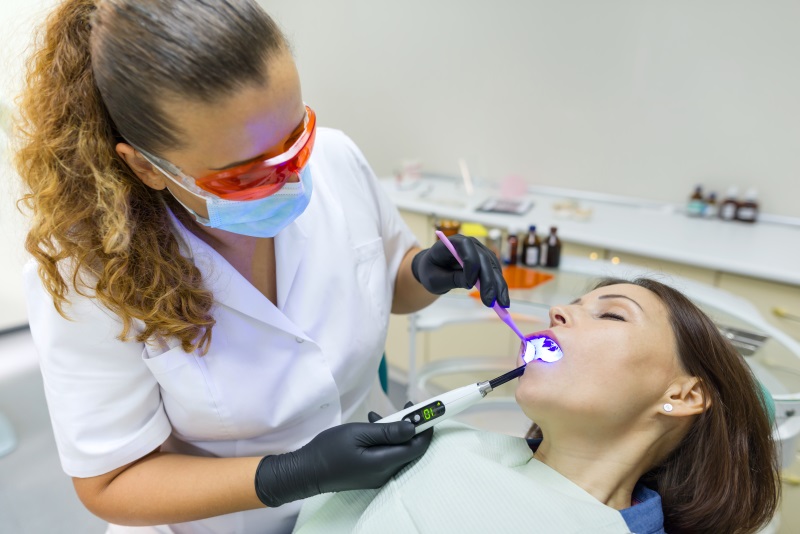We spend quite a bit of time talking about teeth, here. However, they are only one component of your oral health.
How much time do you spend thinking about your tongue? Maybe you think about it more when you bite it or take that sip of hot coffee, but unless you’re experiencing a problem, your tongue is probably forgotten about pretty much all the time.
Your tongue is an important group of muscles that aids in speaking, eating and swallowing. Without it, life would look (and taste) very different. Interestingly, your tongue also has the ability to indicate certain illnesses and gauge other aspects of overall health. Keep reading to discover more fun facts about this muscular organ and what tongue changes really mean!
Fun tongue facts
The average tongue is comprised of 2,000-10,000 taste buds, which is a HUGE range. Those with the most taste buds are labeled as “supertasters” since they experience flavors much more intensely than others. And those little pink and white dots on your tongue? Those are not your taste buds! Instead, they’re called papillae, or hair-like projections that taste buds rest ATOP.
Another interesting fact is that, while most muscles in our body eventually tire, the tongue never does. That’s a huge benefit since we use it primarily for eating and talking!
Top tongues are worth a lot
You may have heard rumors that Jennifer Lopez’s rear end is insured for more than $27 million or that David Beckham took out an almost $200 million policy on his legs and feet. These insurance polices may be gigantic, but also make sense due to their holder’s profession.
In the same vein, the lead chocolate taster for Cadbury has a $1.25 million policy taken out just on her tongue. Her ability to taste slight nuances in production quality or break down the exact balancing in a chocolate bar is literally unbeatable. This is one of the many wonders of the tongue. Just like other muscles, it can be trained and “finessed” to do extraordinary things.
Common tongue issues
While we can’t all make our living as a chocolate tester (don’t we wish), each tongue is a finely tuned organ that can tell a lot about what is going on in the rest of the body.
For instance, a yellow tongue may look jarring and alarming, but generally occurs as a result of a harmless buildup of dead skin cells on the tiny projections (papillae) on the surface of your tongue. If you are experiencing yellow tongue, don’t fret, just brush your tongue the next time you brush your teeth. If the color persists, try increasing the fiber in your diet to reduce the buildup of dead skill cells.
A bright-red tongue can indicate a folic acid or B12 deficiency. These two vitamin deficiencies can easily be remediated through supplements.
Finally, a black hairy tongue is caused by a bacterial overgrowth. This can result from poor oral hygiene, lack of salvia production, and side effects from medications such as chemotherapy. A black tongue can be especially frightening, so if you are experiencing this make an appointment with us to discuss your oral hygiene routine. While this is almost always harmless and temporary, it is important to get a handle on it before it leads to other oral heath problems.
Can it really Itch?
We all get those itches that we can’t seem to fully scratch. But have you ever gotten one on your tongue? Those can be the most annoying since they are hard to stop and you really don’t want to be sticking your hand in your mouth to quell it! The most common reason for a scratchy tongue is an oral allergic reaction. This can occur from environmental factors such as animal hair or as a reaction to a food. Depending on the severity of the allergy, the scratchy tongue can be an indicator that you need to get help fast.
The post Cool Stuff You Don’t Know About Your Tongue appeared first on Fort Worth Dentist | 7th Street District | H. Peter Ku, D.D.S. PA.


No comments:
Post a Comment